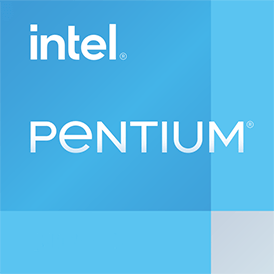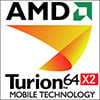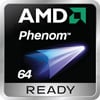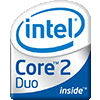
Intel Pentium D 915 Benchmark, test e specifiche
Ultimo aggiornamento:
Il Intel Pentium D 915 ha 2 core con 2 thread ed è basato sul 0. Gene della serie Intel Pentium. Il processore utilizza una scheda madre con il socket LGA 775 ed è stato rilasciato in Q3/2006. Intel Pentium D 915 ottiene 208 punti nel benchmark single-core di Geekbench 5. Nel benchmark multi-core di Geekbench 5, il risultato è 381 punti.

| Cognome: | Intel Pentium D 915 |
|---|---|
| Famiglia: | Intel Pentium (150) |
| Gruppo CPU: | Intel Pentium D (6) |
| Architettura : | Presler |
| Segmento: | Desktop / Server |
| Generazione: | 0 |
| Predecessore: | -- |
| Successore: | -- |
CPU Cores e frequenza di base
Intel Pentium D 915 ha 2 core CPU e può calcolare 2 thread in parallelo. La frequenza di clock di Intel Pentium D 915 è 2,80 GHz. Il numero di core della CPU influisce notevolmente sulla velocità del processore ed è un importante indicatore delle prestazioni.
| CPU Cores / Threads: | 2 / 2 |
|---|---|
| Architettura principale: | normal |
| Cores: | 2x |
| Hyperthreading / SMT: | No |
|---|---|
| Overclocking: | No |
| Frequenza: | 2,80 GHz |
| Turbo Frequenza (1 Core ): | -- |
| Turbo Frequenza (2 Cores): | -- |
Memoria & PCIeIl processore può utilizzare fino a memoria in 0 canali di memoria. La larghezza di banda massima della memoria è --. Il tipo di memoria e la quantità di memoria possono influire notevolmente sulla velocità del sistema. |
|
| Tipo di memoria : | Banda di memoria: |
|---|---|
| DDR2 | -- |
| Max. Memoria: | |
| Canali di memoria : | 0 |
| ECC: | No |
| PCIe: | |
| PCIe Larghezza di banda: | -- |
Gestione termicaLa potenza di progettazione termica (TDP in breve) del processore è 95 W. Il TDP specifica la soluzione di raffreddamento necessaria per raffreddare sufficientemente il processore. Il TDP di solito dà un'idea approssimativa dell'effettivo consumo energetico della CPU. |
|
|---|---|
| TDP (PL1 / PBP): | 95 W |
| TDP (PL2): | -- |
| TDP up: | -- |
| TDP down: | -- |
| Tjunction max.: | -- |
Dettagli tecnici
Il Intel Pentium D 915 è realizzato in 65 nm. Più piccolo è il processo di produzione di una CPU, più è moderna ed efficiente dal punto di vista energetico. Nel complesso, il processore ha 4,00 MB cache. Una cache di grandi dimensioni può accelerare notevolmente la velocità del processore in alcuni casi, ad esempio nei giochi.
| Tecnologia : | 65 nm |
|---|---|
| Design a chip: | Monolitico |
| Presa: | LGA 775 |
| L2-Cache: | 4,00 MB |
| L3-Cache: | -- |
| AES-NI: | No |
| Sistemi operativi: | Windows 10, Linux |
| Virtualizzazione: | Nessuno |
|---|---|
| Set di istruzioni (ISA): | x86-64 (64 bit) |
| Estensioni ISA: | -- |
| Data di lancio : | Q3/2006 |
| Prezzo di rilascio: | 74 $ |
| Numero di parte: | -- |
| Documenti: | Scheda tecnica |
Valuta questo processore
Risultati di benchmark

I risultati del benchmark per Intel Pentium D 915 sono stati attentamente controllati da noi. Pubblichiamo solo risultati di benchmark che sono stati creati da noi o che sono stati inviati da un visitatore e poi controllati da un membro del team. Tutti i risultati sono basati e rispettano le nostre linee guida di benchmark.
Schermate:
Schermate:
- Geekbench 3.4.4 (2GB DDR2-266), Windows 10 Pro
- Geekbench 5.4.4 (2GB DDR2-266), Windows 10 Pro
- Cinebench R23 (2GB DDR2-266, Windows 10)
- Cinebench R20 (2GB DDR2-266), Windows 10 Pro
- Cinebench R15 (2GB DDR2-266), Windows 10 Pro
- Cinebench R11.5 (2GB DDR2-266), Windows 10 Pro
Cinebench R23 (Single-Core)
Cinebench R23 è il successore di Cinebench R20 ed è anch'esso basato su Cinema 4D. Cinema 4D è un software usato a livello mondiale per creare forme in 3D. Il test single-core utilizza solo un nucleo elaborativo della CPU. A tal fine, il numero di nuclei elaborativi o la capacità di hyperthreading non sono rilevanti.

|
AMD Athlon II X2 260u
2C 2T @ 1,80 GHz |
||

|
Intel Celeron N3350
2C 2T @ 2,40 GHz |
||

|
Intel Pentium Gold 4417U
2C 4T @ 2,30 GHz |
||

|
AMD Athlon II X2 250u
2C 2T @ 1,60 GHz |
||
|
|
Intel Pentium D 915
2C 2T @ 2,80 GHz |
||

|
AMD Turion 64 MK-36
1C 1T @ 2,00 GHz |
||

|
Intel Atom x5-Z8350
4C 4T @ 1,92 GHz |
||
Cinebench R23 (Multi-Core)
Cinebench R23 è il successore di Cinebench R20 ed è anch'esso basato su Cinema 4D. Cinema 4D è un software usato a livello mondiale per creare forme in 3D. Il test multi-core coinvolge tutti i nuclei elaborativi della CPU e si avvale del hyperthreading.

|
AMD Athlon II X2 270u
2C 2T @ 2,00 GHz |
||

|
AMD Athlon II X2 260u
2C 2T @ 1,80 GHz |
||

|
Intel Atom x5-Z8350
4C 4T @ 1,92 GHz |
||

|
AMD Athlon II X2 250u
2C 2T @ 1,60 GHz |
||

|
Intel Celeron N3350
2C 2T @ 2,40 GHz |
||
|
|
Intel Pentium D 915
2C 2T @ 2,80 GHz |
||

|
AMD Turion 64 MK-36
1C 1T @ 2,00 GHz |
||
Geekbench 5, 64bit (Single-Core)
Geekbench 5 è un benchmark multi-piattaforma che usa in modo intensivo la memoria del sistema.Il test single-core utilizza solo un nucleo elaborativo della CPU. A tal fine, il numero di nuclei elaborativi o la capacità di hyperthreading non sono rilevanti.

|
AMD Phenom X4 9600
4C 4T @ 2,30 GHz |
||

|
Intel Celeron N3000
2C 2T @ 2,08 GHz |
||

|
Intel Atom Z3736F
4C 4T @ 2,16 GHz |
||
|
|
Intel Pentium D 915
2C 2T @ 2,80 GHz |
||

|
AMD GX-415GA
4C 4T @ 1,50 GHz |
||

|
AMD Athlon 5150
4C 4T @ 1,60 GHz |
||

|
Intel Celeron 1019Y
2C 2T @ 1,00 GHz |
||
Geekbench 5, 64bit (Multi-Core)
Geekbench 5 è un benchmark multi-piattaforma che usa in modo intensivo la memoria del sistema.Il test multi-core coinvolge tutti i nuclei elaborativi della CPU e si avvale del hyperthreading.

|
Intel Celeron 1019Y
2C 2T @ 1,00 GHz |
||

|
Qualcomm Snapdragon 615
8C 8T @ 1,50 GHz |
||

|
Intel Celeron E1400
2C 2T @ 2,00 GHz |
||
|
|
Intel Pentium D 915
2C 2T @ 2,80 GHz |
||

|
Intel Pentium T2310
2C 2T @ 1,46 GHz |
||

|
Qualcomm Snapdragon 427
4C 4T @ 1,40 GHz |
||

|
Samsung Exynos 7578
4C 4T @ 1,50 GHz |
||
Cinebench R20 (Single-Core)
Cinebench R20 è il successore di Cinebench R15 ed è anch'esso basato su Cinema 4D. Cinema 4D è un software usato a livello mondiale per creare forme in 3D. Il test single-core utilizza solo un nucleo elaborativo della CPU. A tal fine, il numero di nuclei elaborativi o la capacità di hyperthreading non sono rilevanti.

|
AMD Turion 64 MK-36
1C 1T @ 2,00 GHz |
||

|
AMD Athlon 5150
4C 4T @ 1,60 GHz |
||

|
Intel Pentium N3710
4C 4T @ 2,56 GHz |
||
|
|
Intel Pentium D 915
2C 2T @ 2,80 GHz |
||

|
Intel Celeron N2930
4C 4T @ 2,16 GHz |
||

|
Intel Celeron J1900
4C 4T @ 2,42 GHz |
||

|
Intel Celeron N2920
4C 4T @ 2,00 GHz |
||
Cinebench R20 (Multi-Core)
Cinebench R20 è il successore di Cinebench R15 ed è anch'esso basato su Cinema 4D. Cinema 4D è un software usato a livello mondiale per creare forme in 3D. Il test multi-core coinvolge tutti i nuclei elaborativi della CPU e si avvale del hyperthreading.

|
Intel Atom x5-Z8350
4C 4T @ 1,92 GHz |
||

|
Intel Celeron N2820
2C 2T @ 2,39 GHz |
||

|
Intel Atom x5-Z8300
4C 4T @ 1,84 GHz |
||
|
|
Intel Pentium D 915
2C 2T @ 2,80 GHz |
||

|
AMD E-350
2C 2T @ 1,60 GHz |
||

|
AMD G-T48E
2C 2T @ 1,40 GHz |
||

|
AMD Turion 64 MK-36
1C 1T @ 2,00 GHz |
||
Risultati stimati da PassMark CPU Mark
Alcune delle CPU elencate di seguito sono stati sottoposti a benchmarking da CPU-monkey. Tuttavia, la maggior parte delle CPU non sono state testate e i risultati sono stati stimati utilizzando una formula segreta di proprietà di CPU-monkey. Come tali, essi non riflettono con precisione i valori attuali di Passmark CPU Mark e non sono stati approvati da PAssMark Software Pty Ltd.

|
Intel Atom S1220
2C 4T @ 1,60 GHz |
||

|
Intel Atom S1240
2C 4T @ 1,60 GHz |
||

|
AMD E-450
2C 2T @ 1,65 GHz |
||
|
|
Intel Pentium D 915
2C 2T @ 2,80 GHz |
||

|
Intel Celeron 450
1C 1T @ 2,20 GHz |
||

|
Intel Celeron N2810
2C 2T @ 2,00 GHz |
||

|
MediaTek MT6739
4C 4T @ 1,50 GHz |
||
Cinebench R15 (Single-Core)
Cinebench R15 è il successore di Cinebench 11.5 ed è anch'esso basato su Cinema 4D. Cinema 4D è un software usato a livello mondiale per creare forme in 3D. Il test single-core utilizza solo un nucleo elaborativo della CPU. A tal fine, il numero di nuclei elaborativi o la capacità di hyperthreading non sono rilevanti.

|
Intel Celeron N3000
2C 2T @ 2,08 GHz |
||

|
Intel Celeron N3150
4C 4T @ 2,08 GHz |
||

|
Intel Celeron N2807
2C 2T @ 2,16 GHz |
||
|
|
Intel Pentium D 915
2C 2T @ 2,80 GHz |
||

|
AMD Athlon 5150
4C 4T @ 1,60 GHz |
||

|
Intel Celeron N2815
2C 2T @ 2,13 GHz |
||

|
Intel Atom x5-Z8350
4C 4T @ 1,92 GHz |
||
Cinebench R15 (Multi-Core)
Cinebench R15 è il successore di Cinebench 11.5 ed è anch'esso basato su Cinema 4D. Cinema 4D è un software usato a livello mondiale per creare forme in 3D. Il test multi-core coinvolge tutti i nuclei elaborativi della CPU e si avvale del hyperthreading.

|
Intel Celeron N2807
2C 2T @ 2,16 GHz |
||

|
Intel Celeron N2815
2C 2T @ 2,13 GHz |
||

|
Intel Celeron N3000
2C 2T @ 2,08 GHz |
||
|
|
Intel Pentium D 915
2C 2T @ 2,80 GHz |
||

|
Intel Celeron N2806
2C 2T @ 2,00 GHz |
||

|
Intel Celeron N2810
2C 2T @ 2,00 GHz |
||

|
Intel Pentium D1509
2C 2T @ 1,50 GHz |
||
Benchmarks

Cinebench R23 (SC)
586 inserimenti
586 inserimenti

Cinebench R23 (MC)
565 inserimenti
565 inserimenti

Geekbench 5 (SC)
2.488 inserimenti
2.488 inserimenti

Geekbench 5 (MC)
2.461 inserimenti
2.461 inserimenti

Cinebench R20 (SC)
656 inserimenti
656 inserimenti

Cinebench R20 (MC)
604 inserimenti
604 inserimenti

PassMark CPU-Mark
2.392 inserimenti
2.392 inserimenti

Cinebench R15 (SC)
1.106 inserimenti
1.106 inserimenti

Cinebench R15 (MC)
1.101 inserimenti
1.101 inserimenti

Geekbench 3 (SC)
942 inserimenti
942 inserimenti

Geekbench 3 (MC)
938 inserimenti
938 inserimenti

Cinebench R11.5 (SC)
825 inserimenti
825 inserimenti

Cinebench R11.5 iGPU
383 inserimenti
383 inserimenti
Confronti più popolari
Torna all'indice







